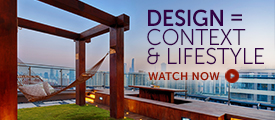A recent poll of American leisure travellers by Choice Hotels found that almost one in 10 respondents’ summer travels were motivated by the opportunity to brag to friends and family on social media. This is great evidence of how social behaviours, influenced by current technology, have affected how people make purchasing decisions. Another finding was that 42% of travellers like to stay in a hotel during the summer because they don’t have to clean the bathroom!
Four experts discuss how new consumer demands have changed hospitality.
Statistics from Google show that mobile continues to have a huge role in the travel experience with 60% of people now searching for destination information on a mobile and two thirds of watch time for top travel videos on YouTube happening on mobile. Consumers also continue to rely on their mobiles once they are on holiday. Google says that there was a 30% increase in smartphone searched from hotel properties in the last year.
Choice Hotels’ poll labels 8% of respondents as Social Travelers – for these people the holiday is all about showing of on social media. But a larger percentage, 26% of respondents are classified as Experience Travelers, who prioritise the experience and activities while travelling.
Choice also found that 57% of American travellers save up all their hotel loyalty points towards that all important Instagramable summer vacation.
If you’ve been sent to this page and you’re not yet on the circulation list to receive these regular briefings and you would like to sign up, you can do see here. It’s free.
Video clips produced by ybc.tv for the Hospitality Channel, including interview from industry conferences such as the IHIF conference as well as specific Hospitality Channel shoots.




